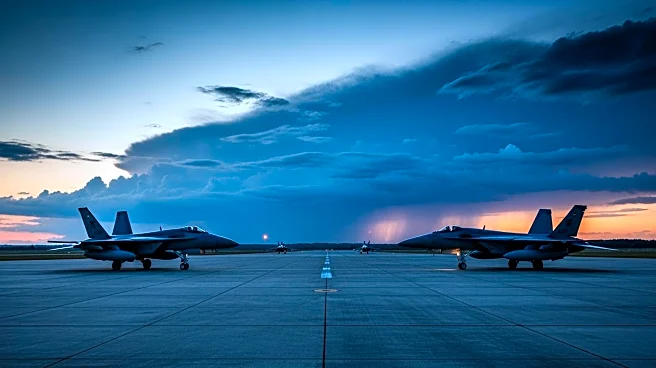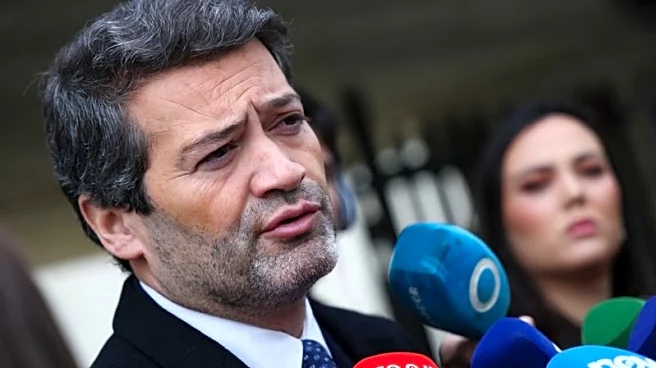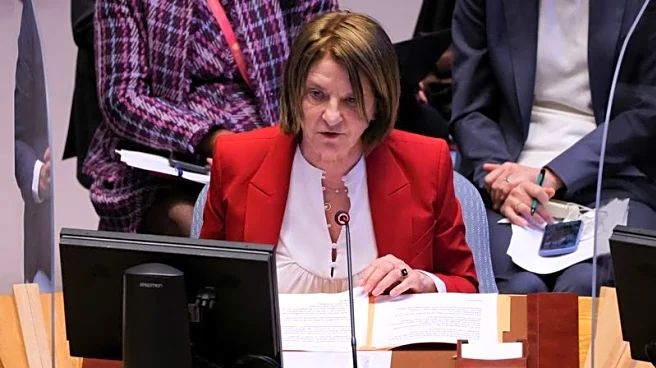What's Happening?
Poland has deployed fighter jets and closed two airports in response to Russian missile and drone attacks on Ukraine. The strikes primarily targeted western Ukraine, close to the Polish border, causing significant damage and power outages. Poland's operational
command confirmed that quick-reaction fighter pairs and early warning aircraft were scrambled, and ground-based air defense systems reached the highest state of readiness. The airports in Rzeszow and Lublin were temporarily closed to ensure military aviation operations. This move follows accusations from Polish officials of Russian involvement in sabotage activities within Poland, which Russia denies. Meanwhile, Ukraine's President Zelenskyy is in Turkey to discuss peace talks and prisoner exchanges with Russia, although Russia is not directly involved in these discussions.
Why It's Important?
The deployment of Polish fighter jets underscores the escalating tensions in Eastern Europe, particularly as NATO allies respond to Russian military actions. Poland's proactive defense measures highlight the growing concern over regional security and the potential for conflict spillover. The situation is further complicated by accusations of sabotage linked to Russian intelligence, which could strain diplomatic relations. The U.S. State Department's approval of a $105 million sale to upgrade Ukraine's air defense system reflects ongoing international support for Ukraine's defense capabilities. These developments could influence NATO's strategic posture and impact future military and diplomatic engagements in the region.
What's Next?
Poland and NATO allies are likely to continue monitoring the situation closely, with potential for further military readiness and diplomatic actions. The ongoing peace talks in Turkey, involving Ukraine and facilitated by Turkey, may offer a pathway to de-escalation, although Russia's absence from direct negotiations poses challenges. The international community, including the U.S. and France, may increase military support to Ukraine, potentially altering the balance of power in the conflict. Continued Russian aggression could lead to heightened military responses from NATO, increasing the risk of broader regional conflict.
Beyond the Headlines
The conflict's impact extends beyond immediate military engagements, affecting regional stability and international relations. The accusations of sabotage within Poland highlight the complex nature of modern warfare, where intelligence operations play a critical role. The involvement of NATO and the strategic decisions made by member countries could redefine security policies in Europe. Additionally, the humanitarian impact on Ukrainian civilians, facing power outages and infrastructure damage, underscores the broader societal consequences of the conflict.
















